MIAMI – When it comes to solving an issue as critical as the potential loss of lucrative coastal sportfisheries, passion and science must work in tandem. Bonefish, tarpon, and permit fisheries have a rich cultural history and provide critical economic impact to coastal communities worldwide. These fisheries are threatened by increased degradation of habitats, declining water quality, loss of prey, overfishing, and other environmental factors that have placed many of these fisheries in jeopardy.
Equally important, these species are also good indicators of the overall health of the coastal oceans because their populations are greatly dependent on the status of the ecosystem as a whole. Changes in their populations may signal greater issues throughout the coastal environment and provide clues that we can study and address before the situation becomes critical.
An innovative collaboration between the Bonefish Tarpon Trust (BTT) and the University of Miami (UM) Rosenstiel School of Marine & Atmospheric Science has been formed to address these concerns.
BTT brings a decade of research and science-based advocacy dedicated to ensuring that fisheries for bonefish, tarpon, and permit are sustainable. For the last 12 years the membership of the BTT has supported the study of fisheries dynamics and conservation in sub-tropical habitats where bonefish, tarpon and permit are found. During that time the BTT has worked closely with UM Professor Jerald Ault, as well as other deeply committed scientists, legendary anglers and guides, captains of industry, celebrities and others involved in this multi-billion dollar business, to lay the groundwork needed to better understand and protect these fisheries.
UM brings the world’s premier tropical marine and atmospheric research institution and decades of successful collaborations that have produced exciting science and helped to inform the scientific community and the general public. UM expertise includes quantitative fisheries ecology, oceanography, resource management, and law. UM’s Rosenstiel School is dedicated to helping communities to better understand the oceans, participating in the establishment of environmental policies, and aiding in the improvement of society and quality of life. This unique collaborative partnership, dubbed the Tarpon and Bonefish Research Center (TBRC), is the only effort with the commitment to solving the problems affecting these resources, and a documented ability to educate and influence outcomes. The TBRC, led by Professor Ault and its Advisory Board consisting of BTT and UM leadership, will be dedicated to building on this knowledge base and combining their efforts to sustain critical sportfisheries in the Gulf of Mexico, southeastern United States, Caribbean, and literally around the world. Annually these fisheries represent billions of dollars towards coastal economies.
Matt Connolly, president of BTT, the only international conservation organization devoted exclusively to bonefish, tarpon, permit and their sub-tropical habitats said, “Stewardship through science is the motto of the Bonefish Tarpon Trust; we enthusiastically see the creation of the Tarpon and Bonefish Research Center as a win for science, the resources, and anglers and guides.”
Tom Davidson, chairman of BTT, added, “Our energy and focus are committed to creating a center of excellence that will protect and preserve these fisheries not only for our enjoyment, but for those generations to come. By creating an on-going source of funding and a perpetual endowment led by world-renowned UM scientists, we will ensure this path.” The joint effort will pursue several key areas of research:
• Population Dynamics and Demographics
• Fishery Dynamics and Exploitation
• Movements & Migrations
• Habitat Assessment
• Stock Assessment & Ecosystem Modeling
• Fisheries Economics and Policy
“Together we are creating a powerful, centralized resource that will serve as the world’s premiere location for scientific information on these species,” said Donna E. Shalala, president of UM. “By combining our awardwinning scientists with the vast network of passionate advocates for the oceans that the BTT has assembled, we are creating a collaboration that is unmatched and unyielding in its goal.”
The initiative will form part of UM’s recently announced Momentum2 campaign. Between the BTT and UM, approximately $35 million will be raised to support and carry out tarpon, bonefish and permit research and fishery restoration through the establishment of new scientific methods, technologies and data related to sustaining these key sportfisheries populations. This global center of knowledge and repository of information will also serve as a cornerstone for the creation of new graduate education and public outreach programs that will incorporate several audiences, from those who use the coastal oceans regularly, to students and policymakers.
The University of Miami is the largest private research institution in the southeastern United States. The University’s mission is to provide quality education, attract and retain outstanding students, support the faculty and their research, and build an endowment for University initiatives. For more information, please visit www.miami.edu



